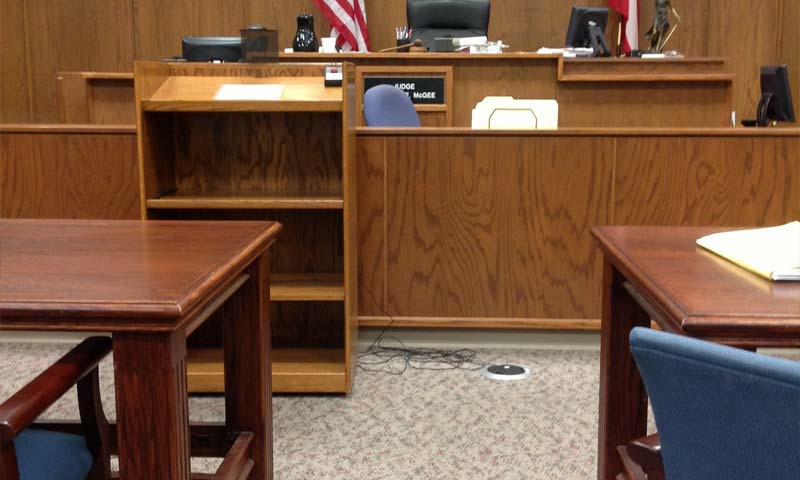Understanding the Difference Between Chapter 7 and Chapter 13 Bankruptcy
Bankruptcy can be a powerful tool to help individuals regain control of their finances and get a fresh start. However, understanding the differences between Chapter 7 and Chapter 13 bankruptcy is essential to choosing the right path for your financial future. At Brian G. Hiatt, Attorney at Law, I’m here to help you navigate the bankruptcy process and make informed decisions based on your unique financial situation.
What is Chapter 7 Bankruptcy?
Chapter 7 bankruptcy, sometimes called “liquidation bankruptcy,” is designed to help individuals discharge unsecured debts, such as credit card debt, medical bills, and personal loans. In a Chapter 7 case, a trustee may liquidate (sell) certain assets to repay creditors. However, many individuals can keep most, if not all, of their personal property due to state and federal exemptions.
Key Points of Chapter 7 Bankruptcy:
- Debt Discharge: Chapter 7 allows you to eliminate unsecured debts entirely, giving you a clean financial slate.
- Faster Process: Most Chapter 7 cases are completed within 3-6 months, allowing for quicker financial relief.
- Eligibility Requirements: Not everyone qualifies for Chapter 7. To file, you must pass a “means test,” which evaluates your income and financial situation.
Chapter 7 is typically best for individuals with limited income who are unable to repay their debts and do not have significant assets.
What is Chapter 13 Bankruptcy?
Chapter 13 bankruptcy, often referred to as a “reorganization bankruptcy,” provides individuals with a way to repay their debts over time. Instead of liquidating assets, Chapter 13 allows you to create a manageable payment plan, usually lasting 3-5 years. This plan helps reorganize your debts and can stop foreclosure proceedings, making it an attractive option for homeowners.
Key Points of Chapter 13 Bankruptcy:
- Debt Repayment Plan: Chapter 13 enables you to pay back debts, often at a reduced rate, over a set period.
- Asset Protection: Chapter 13 allows you to keep valuable assets, such as your home and car, as long as you adhere to the payment plan.
- Eligibility Requirements: To qualify, you must have a reliable income source to make monthly payments and your debt must be within specific limits.
Chapter 13 bankruptcy is often a good choice for individuals with a steady income who want to protect certain assets and are capable of making regular payments.
Comparing Chapter 7 and Chapter 13 Bankruptcy: Which is Right for You?
Deciding between Chapter 7 and Chapter 13 bankruptcy depends on your income, debt levels, and financial goals. Here are some key considerations:
- Income Level: Chapter 7 is designed for low-income individuals who cannot afford to repay their debts, while Chapter 13 requires a stable income to make regular payments.
- Asset Ownership: Chapter 13 is more suitable for individuals who own valuable assets (like a home) and want to protect them. Chapter 7 may require selling certain non-exempt assets, although many people qualify for exemptions that allow them to keep essential property.
- Type of Debt: If your primary debts are unsecured, like credit card debt or medical bills, Chapter 7 may be a more effective option. For those with secured debts (like a mortgage or car loan) who want to prevent foreclosure or repossession, Chapter 13 may be preferable.
- Timeline for Financial Relief: Chapter 7 is a quicker process, often complete within a few months. Chapter 13’s repayment plan spans 3-5 years but allows for asset protection and repayment flexibility.
Navigating Bankruptcy with Expert Legal Guidance
Bankruptcy can feel overwhelming, but having a knowledgeable attorney by your side can make the process manageable and stress-free. At Brian G. Hiatt, Attorney at Law, I have years of experience helping individuals understand their bankruptcy options and guiding them through the process, from filing to debt discharge. I’ll help you determine whether Chapter 7 or Chapter 13 bankruptcy is the best fit for your financial goals and provide personalized support every step of the way.
Take Control of Your Financial Future—Contact Brian G. Hiatt Today
If you’re struggling with debt and considering bankruptcy, the time to act is now. Contact Brian G. Hiatt, Attorney at Law to schedule a consultation and discuss how bankruptcy could provide the relief you need. Together, we can build a strategy that protects your assets, relieves your debt burden, and empowers you to start fresh. Don’t face bankruptcy alone—let us help you take control of your financial future today.



















